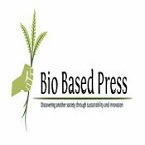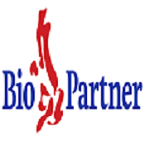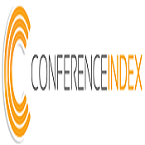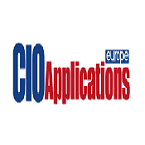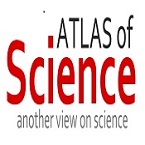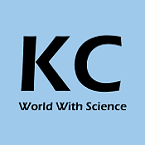Renowned Speakers

Natasha Lucki
Thermo Fisher Scientific, USA

Sean N Tucker
Vaxart Inc, USA

Lopa Banerjee
Cardiff University, UK

Wendy peters
Vaxart Inc, USA

Henryk Mach
Merck Research Laboratories, USA

Randa Hamadeh
Ministry of Public Health, Lebanon

Anthony Gilbert
hVIVO, UK

Kei Amemiya
US Army Medical Research Institute of Infectious Diseases, USA
Recommended Global Vaccines Webinars & Conferences
Asia Pacific & Middle East
Canada
Vaccines Summit 2023
About Conference
35th World Vaccines & Immunization Summit" will be held on August 18-19, 2023 at Paris, France. 35th World Vaccines and Immunization Summit” mainly focuses on the gathering and concentrate on the trending advances and development in every aspect of Vaccines and Immunization research which takes an opportunity in meeting, organizing and see the new logical advancements of the specialists and researchers. We foresee a great scientific faculty from Australia and in addition from different nations with some highly interesting scientific researchers to delegate the occasion. We unconditionally invite all the prominent Researchers, Professors, Students and delegates to participate in this upcoming Vaccines and Immunization event to witness a valuable scientific occasion and to participate in Vaccines Workshop, Vaccines Symposium & contribute to the future innovations in the field of Vaccines & Immunization.
Vaccines and Immunization 2023 Conference is a global platform to discuss and learn Vaccines and Immunization, Vaccine Preventable Diseases, Plant-Based Vaccines, Types of Immunology, Immunoresearch & Immunotechnology, Autoimmune & Inflammatory Diseases, Immune Diseases, Making a Session Plan, Giving Vaccinations, HIV Vaccines, Vaccines Production and Development, Vaccines for Immune Mediated Diseases, Vaccine Safety & Efficacy.
Young Scientist Benefits
- Our conferences provide best Platform for your research through oral presentations.
- Share the ideas with both eminent researchers and mentors.
- Young Scientist Award reorganization certificate and memento to the winners
- Young Scientists will get appropriate and timely information by this Forum.
- Platform for collaboration among young researchers for better development
- Award should motivate participants to strive to realize their full potential which could in turn be beneficial to the field as whole.
Vaccines are antigenic substance prepared from the causative agent of a disease or a synthetic substitute, used to provide immunity against one or several diseases. Vaccine stimulates the immune system so that it can recognize the disease and protect from future infection. Vaccines & Immunization 2023 gives you an Opportunity to attend the presentations delivered by eminent scientists from all over the world and Global networking: In transferring and exchanging Ideas
Exhibition:
Why exhibit?
- Make sales
- Debut new products
- Profile your brand
- Meet new business partners and suppliers
- Develop key relationships
- Educate Vaccines & Immunization institutions and academia
Who you will meet?
- Immunologists
- Scientists
- Young researchers
- Professors
- Students
- Delegates from Academies
- Institutes & Industries besides the professionals from Immunological companies and Healthcare Sectors
Who should sponsor?
- Immunization Societies
- Immunization Research Institutes
- Hospitals
- Pharmaceuticals
- Drug Manufacturers
- Educational Institutes
- Research Centers
Why you should attend?
- The challenge in vaccine development consists in devising a vaccine strong enough to ward off infection without making the individual seriously ill. To that end, researchers have devised different types of vaccines.
- Risk factors for the development and progressions of Vaccines & Immunology
- New Diagnostic Criteria for Immunization Disease.
- Assessment in early stage Immunization Disease.
- Latest Advancements in Vaccines.
- Engage in the exciting event format, with round tables, panels, showcases, speed networking and multiple conference tracks.
- Share experiences, insights and strategies in interactive peer-to peer round tables.
- Hear more perspectives in one place – from large medium and small organizations from pharma, biotech and academia.
Sessions & Tracks
Track 1: Vaccines
Vaccines play a vital role in the healthcare department especially for a growing children. A vaccine is a biological preparation that provides active acquired immunity to a particular disease. Totally 26 Vaccines are available authorized by the WHO. Different Vaccines are Measles vaccines, Rubella vaccines, Cholera vaccines, Meningococcal disease vaccines, Influenza vaccines, Diphtheria vaccines, Mumps vaccines, Tetanus vaccines, Hepatitis A vaccines, Pertussis vaccines, Tuberculosis vaccines, Hepatitis B vaccines, Pneumococcal disease vaccines, Typhoid fever vaccines, Hepatitis E vaccines, Poliomyelitis vaccines, Tick-borne encephalitis vaccines, Haemophilus influenzae type b vaccines, Rabies vaccines, Varicella and herpes zoster vaccines, Human papilloma-virus vaccines, Rotavirus gastroenteritis vaccines, Yellow fever vaccines, Japanese encephalitis vaccines, Malaria vaccines and Dengue fever vaccines. Vaccination is the most effective method of preventing infectious diseases. This Conference brings out the knowledge about Highlights of latest technologies and innovations in Vaccines and Immunization.
EUROPE:
British Society for Immunology; European Society for Paediatric Infectious Diseases; European Respiratory Society; Danish Cancer Society; Brazilian Society of Immunizations; Brazilian Society of Immunizations; European Society of Gene Therapy; European Society for Immunodeficiency; French Society of Immunology; Immunology of Diabetes Society; Deutsche Gesellschaft für Immunologie
USA:
Anti-Vaccination Society of America; International Society of Vaccines; Infectious Diseases Society of America; Golden State Humane Society; International Society of Travel Medicine; American Cancer Society; American Travel Health Nurses Association; American Nurses Association; Bay Area Humane Society; American Society for Microbiology; New Hampshire Vaccine Association; American Academy of Paediatrics (AAP); American College Health Association (ACHA); Association of Immunization Managers (AIM); Association for Professionals in Infection Control and Epidemiology (APIC)
Asia and Middle-East:
South African Immunology Society; Australasian Society of Clinical Immunology and Allergy; Asian Society of Paediatric Infectious Diseases; Korean Society of Infectious Diseases; Wildlife Conservation Society; Annual Scientific Meeting of Indonesian Paediatric Society; Philippine Paediatric Society; Asian Society of Toxicology; Chinese Society Of Toxicology; Asia Pacific Association of Allergy, Asthma, and Clinical Immunology (APAAACI); Asia Pacific Association of Paediatric Allergy, Respirology and Immunology (APAPARI); Commonwealth of Independent States Society of Allergology and Immunology (CIS Society)
Track 2: Cancer, Malaria & TB Vaccines
Malaria continues to claim an estimated 2 to 3 million lives annually and to account for untold morbidity in the approximately 300 to 500 million people infected annually. Malaria is considered a re-emerging disease, due largely to the spread of drug-resistant parasite strains, decay of health-care infrastructure and difficulties in implementing and maintaining vector control programs in many developing countries. Four species of protozoan parasites cause malaria in humans: Plasmodium falciparum, P. vivax, P. malariae, and P. ovale. P. falciparum is responsible for the majority of deaths and most of the severe forms of disease, including cerebral malaria. 2 billion people latently infected with M. tuberculosis 5-10% infected people progress to disease 9 million new TB cases each year 1.5 million TB deaths each year Equivalent to 20 passenger aircraft crashes each day. TB is transmitted by adults with cavitatory disease, HIV infected people carry greater burden of disease. Highest risk of progression from TB infection to active disease, and worst TB morbidity and mortality, compared to older children and adults.
EUROPE:
British Society for Immunology; European Society for Paediatric Infectious Diseases; European Respiratory Society; Danish Cancer Society; Brazilian Society of Immunizations; Brazilian Society of Immunizations; European Society of Gene Therapy; European Society for Immunodeficiency; French Society of Immunology; Immunology of Diabetes Society; Deutsche Gesellschaft für Immunologie
USA:
Anti-Vaccination Society of America; International Society of Vaccines; Infectious Diseases Society of America; Golden State Humane Society; International Society of Travel Medicine; American Cancer Society; American Travel Health Nurses Association; American Nurses Association; Bay Area Humane Society; American Society for Microbiology; New Hampshire Vaccine Association; American Academy of Paediatrics (AAP); American College Health Association (ACHA); Association of Immunization Managers (AIM); Association for Professionals in Infection Control and Epidemiology (APIC)
Asia and Middle-East:
South African Immunology Society; Australasian Society of Clinical Immunology and Allergy; Asian Society of Paediatric Infectious Diseases; Korean Society of Infectious Diseases; Wildlife Conservation Society; Annual Scientific Meeting of Indonesian Paediatric Society; Philippine Paediatric Society; Asian Society of Toxicology; Chinese Society Of Toxicology; Asia Pacific Association of Allergy, Asthma, and Clinical Immunology (APAAACI); Asia Pacific Association of Paediatric Allergy, Respirology and Immunology (APAPARI); Commonwealth of Independent States Society of Allergology and Immunology (CIS Society)
Track 3: HIV Vaccines
The most important breakthroughs of the past century involved the development of vaccines to protect against viruses: smallpox, polio, hepatitis, human papillomavirus(HPV), and even chickenpox. But one virus remains elusive to those seeking to create a vaccine to guard against it: HIV. Getting vaccinated early, before sexual exposure, is also effective in preventing certain types of STIs. Vaccines are available to prevent human papillomavirus (HPV), hepatitis A and hepatitis B.
EUROPE:
British Society for Immunology; European Society for Paediatric Infectious Diseases; European Respiratory Society; Danish Cancer Society; Brazilian Society of Immunizations; Brazilian Society of Immunizations; European Society of Gene Therapy; European Society for Immunodeficiency; French Society of Immunology; Immunology of Diabetes Society; Deutsche Gesellschaft für Immunologie
USA:
Anti-Vaccination Society of America; International Society of Vaccines; Infectious Diseases Society of America; Golden State Humane Society; International Society of Travel Medicine; American Cancer Society; American Travel Health Nurses Association; American Nurses Association; Bay Area Humane Society; American Society for Microbiology; New Hampshire Vaccine Association; American Academy of Paediatrics (AAP); American College Health Association (ACHA); Association of Immunization Managers (AIM); Association for Professionals in Infection Control and Epidemiology (APIC)
Asia and Middle-East:
South African Immunology Society; Australasian Society of Clinical Immunology and Allergy; Asian Society of Paediatric Infectious Diseases; Korean Society of Infectious Diseases; Wildlife Conservation Society; Annual Scientific Meeting of Indonesian Paediatric Society; Philippine Paediatric Society; Asian Society of Toxicology; Chinese Society Of Toxicology; Asia Pacific Association of Allergy, Asthma, and Clinical Immunology (APAAACI); Asia Pacific Association of Paediatric Allergy, Respirology and Immunology (APAPARI); Commonwealth of Independent States Society of Allergology and Immunology (CIS Society)
Track 4: Combination & Conjugate Vaccines
Increasingly, more diseases are becoming vaccine preventable, but maintaining community and provider acceptance demands that the number of injections doesn’t increase. Combination conjugate vaccines represent an inevitable and important advance. This paper reviews the efficacy and safety of combination conjugate vaccines, including immunological mechanisms underlying interactions among vaccine epitopes, the role of immunological memory, and correlates of immunity. Specific attention is given to the experience with combination vaccines against each of Haemophilic influenza type b, Streptococcus pneumonia and Neisseria meningitides. The implications of these findings for different communities are discussed, key areas for further research identified and implications for post-licensure monitoring addressed.
EUROPE:
British Society for Immunology; European Society for Paediatric Infectious Diseases; European Respiratory Society; Danish Cancer Society; Brazilian Society of Immunizations; Brazilian Society of Immunizations; European Society of Gene Therapy; European Society for Immunodeficiency; French Society of Immunology; Immunology of Diabetes Society; Deutsche Gesellschaft für Immunologie
USA:
Anti-Vaccination Society of America; International Society of Vaccines; Infectious Diseases Society of America; Golden State Humane Society; International Society of Travel Medicine; American Cancer Society; American Travel Health Nurses Association; American Nurses Association; Bay Area Humane Society; American Society for Microbiology; New Hampshire Vaccine Association; American Academy of Paediatrics (AAP); American College Health Association (ACHA); Association of Immunization Managers (AIM); Association for Professionals in Infection Control and Epidemiology (APIC)
Asia and Middle-East:
South African Immunology Society; Australasian Society of Clinical Immunology and Allergy; Asian Society of Paediatric Infectious Diseases; Korean Society of Infectious Diseases; Wildlife Conservation Society; Annual Scientific Meeting of Indonesian Paediatric Society; Philippine Paediatric Society; Asian Society of Toxicology; Chinese Society Of Toxicology; Asia Pacific Association of Allergy, Asthma, and Clinical Immunology (APAAACI); Asia Pacific Association of Paediatric Allergy, Respirology and Immunology (APAPARI); Commonwealth of Independent States Society of Allergology and Immunology (CIS Society)
Track 5: Vaccines against Infectious Diseases
Infectious diseases are responsible for approximately 25% of global mortality, especially in children aged younger than 5 years. Much of the burden of infectious diseases could be alleviated if appropriate mechanisms could be put in place to ensure access for all children to basic vaccines, regardless of geographical location or economic status. In addition, new safe and effective vaccines should be developed for a variety of infections against which no effective preventive intervention measure is either available or practical. The public, private, and philanthropic sectors need to join forces to ensure that these new or improved vaccines are fully developed and become accessible to the populations in need as quickly as possible
EUROPE:
British Society for Immunology; European Society for Paediatric Infectious Diseases; European Respiratory Society; Danish Cancer Society; Brazilian Society of Immunizations; Brazilian Society of Immunizations; European Society of Gene Therapy; European Society for Immunodeficiency; French Society of Immunology; Immunology of Diabetes Society; Deutsche Gesellschaft für Immunologie
USA:
Anti-Vaccination Society of America; International Society of Vaccines; Infectious Diseases Society of America; Golden State Humane Society; International Society of Travel Medicine; American Cancer Society; American Travel Health Nurses Association; American Nurses Association; Bay Area Humane Society; American Society for Microbiology; New Hampshire Vaccine Association; American Academy of Paediatrics (AAP); American College Health Association (ACHA); Association of Immunization Managers (AIM); Association for Professionals in Infection Control and Epidemiology (APIC)
Asia and Middle-East:
South African Immunology Society; Australasian Society of Clinical Immunology and Allergy; Asian Society of Paediatric Infectious Diseases; Korean Society of Infectious Diseases; Wildlife Conservation Society; Annual Scientific Meeting of Indonesian Paediatric Society; Philippine Paediatric Society; Asian Society of Toxicology; Chinese Society Of Toxicology; Asia Pacific Association of Allergy, Asthma, and Clinical Immunology (APAAACI); Asia Pacific Association of Paediatric Allergy, Respirology and Immunology (APAPARI); Commonwealth of Independent States Society of Allergology and Immunology (CIS Society)
Track 6: DNA & Synthetic Vaccines
Scientists take many approaches to designing vaccines against a microbe. These choices are typically based on fundamental information about the microbe, such as how it infects cells and how the immune system responds to it, as well as practical considerations, such as regions of the world where the vaccine would be used. A DNA vaccine against a microbe would evoke a strong antibody response to the free-floating antigen secreted by cells, and the vaccine also would stimulate a strong cellular response against the microbial antigens displayed on cell surfaces. The DNA vaccine couldn’t cause the disease because it wouldn’t contain the microbe, just copies of a few of its genes. In addition, DNA vaccines are relatively easy and inexpensive to design and produce. Inactivated vaccines can be composed of either whole viruses or bacteria, or fractions of either. Fractional vaccines are either protein-based or polysaccharide-based.
EUROPE:
British Society for Immunology; European Society for Paediatric Infectious Diseases; European Respiratory Society; Danish Cancer Society; Brazilian Society of Immunizations; Brazilian Society of Immunizations; European Society of Gene Therapy; European Society for Immunodeficiency; French Society of Immunology; Immunology of Diabetes Society; Deutsche Gesellschaft für Immunologie
USA:
Anti-Vaccination Society of America; International Society of Vaccines; Infectious Diseases Society of America; Golden State Humane Society; International Society of Travel Medicine; American Cancer Society; American Travel Health Nurses Association; American Nurses Association; Bay Area Humane Society; American Society for Microbiology; New Hampshire Vaccine Association; American Academy of Paediatrics (AAP); American College Health Association (ACHA); Association of Immunization Managers (AIM); Association for Professionals in Infection Control and Epidemiology (APIC)
Asia and Middle-East:
South African Immunology Society; Australasian Society of Clinical Immunology and Allergy; Asian Society of Paediatric Infectious Diseases; Korean Society of Infectious Diseases; Wildlife Conservation Society; Annual Scientific Meeting of Indonesian Paediatric Society; Philippine Paediatric Society; Asian Society of Toxicology; Chinese Society Of Toxicology; Asia Pacific Association of Allergy, Asthma, and Clinical Immunology (APAAACI); Asia Pacific Association of Paediatric Allergy, Respirology and Immunology (APAPARI); Commonwealth of Independent States Society of Allergology and Immunology (CIS Society)
Track 7: Travel & Edible Vaccines
Travel vaccines are recommended to provide protection against diseases endemic to the country of origin or of destination. They are intended to protect travellers and to prevent disease spread within and between countries. There is no single vaccination schedule that fits all travellers. Each schedule must be individualized according to the traveller’s previous immunizations, health status and risk factors, the countries to be visited, the type and duration of travel, and the amount of time available before departure.
Edible vaccines hold great promise as a cost-effective, easy-to-administer, easy-to-store, fail-safe and sociocultural readily acceptable vaccine delivery system, especially for the poor developing countries. It involves introduction of selected desired genes into plants and then inducing these altered plants to manufacture the encoded proteins.
EUROPE:
British Society for Immunology; European Society for Paediatric Infectious Diseases; European Respiratory Society; Danish Cancer Society; Brazilian Society of Immunizations; Brazilian Society of Immunizations; European Society of Gene Therapy; European Society for Immunodeficiency; French Society of Immunology; Immunology of Diabetes Society; Deutsche Gesellschaft für Immunologie
USA:
Anti-Vaccination Society of America; International Society of Vaccines; Infectious Diseases Society of America; Golden State Humane Society; International Society of Travel Medicine; American Cancer Society; American Travel Health Nurses Association; American Nurses Association; Bay Area Humane Society; American Society for Microbiology; New Hampshire Vaccine Association; American Academy of Paediatrics (AAP); American College Health Association (ACHA); Association of Immunization Managers (AIM); Association for Professionals in Infection Control and Epidemiology (APIC)
Asia and Middle-East:
South African Immunology Society; Australasian Society of Clinical Immunology and Allergy; Asian Society of Paediatric Infectious Diseases; Korean Society of Infectious Diseases; Wildlife Conservation Society; Annual Scientific Meeting of Indonesian Paediatric Society; Philippine Paediatric Society; Asian Society of Toxicology; Chinese Society Of Toxicology; Asia Pacific Association of Allergy, Asthma, and Clinical Immunology (APAAACI); Asia Pacific Association of Paediatric Allergy, Respirology and Immunology (APAPARI); Commonwealth of Independent States Society of Allergology and Immunology (CIS Society)
Track 8: Paediatric Vaccination
Immunization against diseases such as Polio, Tetanus, Diphtheria, and Pertussis saves the lives of approximately three million children each year. Immunization also prevents many more millions from suffering debilitating illness and lifelong disability. Globally, approximately 132 million babies need to be fully immunized each year. In order to meet this need, immunization systems must have adequate resources, trained and motivated staff, and ample vaccines and syringe supplies.
EUROPE:
British Society for Immunology; European Society for Paediatric Infectious Diseases; European Respiratory Society; Danish Cancer Society; Brazilian Society of Immunizations; Brazilian Society of Immunizations; European Society of Gene Therapy; European Society for Immunodeficiency; French Society of Immunology; Immunology of Diabetes Society; Deutsche Gesellschaft für Immunologie
USA:
Anti-Vaccination Society of America; International Society of Vaccines; Infectious Diseases Society of America; Golden State Humane Society; International Society of Travel Medicine; American Cancer Society; American Travel Health Nurses Association; American Nurses Association; Bay Area Humane Society; American Society for Microbiology; New Hampshire Vaccine Association; American Academy of Paediatrics (AAP); American College Health Association (ACHA); Association of Immunization Managers (AIM); Association for Professionals in Infection Control and Epidemiology (APIC)
Asia and Middle-East:
South African Immunology Society; Australasian Society of Clinical Immunology and Allergy; Asian Society of Paediatric Infectious Diseases; Korean Society of Infectious Diseases; Wildlife Conservation Society; Annual Scientific Meeting of Indonesian Paediatric Society; Philippine Paediatric Society; Asian Society of Toxicology; Chinese Society Of Toxicology; Asia Pacific Association of Allergy, Asthma, and Clinical Immunology (APAAACI); Asia Pacific Association of Paediatric Allergy, Respirology and Immunology (APAPARI); Commonwealth of Independent States Society of Allergology and Immunology (CIS Society)
Track 9: Vaccines for Immune Mediated Diseases
Patients with immune-mediated inflammatory diseases (IMID) such as RA, IBD or psoriasis, are at increased risk of infection, partially because of the disease itself, but mostly because of treatment with immune-modulatory or immunosuppressive drugs. In spite of their elevated risk for vaccine-preventable disease, vaccination coverage in IMID patients is surprisingly low. Although the reduced quality of the immune response in patients under immunotherapy may have a negative impact on vaccination efficacy in this population, adequate humoral response to vaccination in IMID patients has been demonstrated for Hepatitis B, Influenza and Pneumococcal vaccination.
EUROPE:
British Society for Immunology; European Society for Paediatric Infectious Diseases; European Respiratory Society; Danish Cancer Society; Brazilian Society of Immunizations; Brazilian Society of Immunizations; European Society of Gene Therapy; European Society for Immunodeficiency; French Society of Immunology; Immunology of Diabetes Society; Deutsche Gesellschaft für Immunologie
USA:
Anti-Vaccination Society of America; International Society of Vaccines; Infectious Diseases Society of America; Golden State Humane Society; International Society of Travel Medicine; American Cancer Society; American Travel Health Nurses Association; American Nurses Association; Bay Area Humane Society; American Society for Microbiology; New Hampshire Vaccine Association; American Academy of Paediatrics (AAP); American College Health Association (ACHA); Association of Immunization Managers (AIM); Association for Professionals in Infection Control and Epidemiology (APIC)
Asia and Middle-East:
South African Immunology Society; Australasian Society of Clinical Immunology and Allergy; Asian Society of Paediatric Infectious Diseases; Korean Society of Infectious Diseases; Wildlife Conservation Society; Annual Scientific Meeting of Indonesian Paediatric Society; Philippine Paediatric Society; Asian Society of Toxicology; Chinese Society Of Toxicology; Asia Pacific Association of Allergy, Asthma, and Clinical Immunology (APAAACI); Asia Pacific Association of Paediatric Allergy, Respirology and Immunology (APAPARI); Commonwealth of Independent States Society of Allergology and Immunology (CIS Society)
Track 10: Vaccines against Drugs
Drug addiction is a serious problem worldwide. One therapy being investigated is vaccines against drugs of abuse. The antibodies elicited against the drug can take up the drug and prevent it from reaching the reward centres in the brain. Few such vaccines have entered clinical trials, but research is going on apace. Many studies are very promising and more clinical trials should be coming out in the near future.
EUROPE:
British Society for Immunology; European Society for Paediatric Infectious Diseases; European Respiratory Society; Danish Cancer Society; Brazilian Society of Immunizations; Brazilian Society of Immunizations; European Society of Gene Therapy; European Society for Immunodeficiency; French Society of Immunology; Immunology of Diabetes Society; Deutsche Gesellschaft für Immunologie
USA:
Anti-Vaccination Society of America; International Society of Vaccines; Infectious Diseases Society of America; Golden State Humane Society; International Society of Travel Medicine; American Cancer Society; American Travel Health Nurses Association; American Nurses Association; Bay Area Humane Society; American Society for Microbiology; New Hampshire Vaccine Association; American Academy of Paediatrics (AAP); American College Health Association (ACHA); Association of Immunization Managers (AIM); Association for Professionals in Infection Control and Epidemiology (APIC)
Asia and Middle-East:
South African Immunology Society; Australasian Society of Clinical Immunology and Allergy; Asian Society of Paediatric Infectious Diseases; Korean Society of Infectious Diseases; Wildlife Conservation Society; Annual Scientific Meeting of Indonesian Paediatric Society; Philippine Paediatric Society; Asian Society of Toxicology; Chinese Society Of Toxicology; Asia Pacific Association of Allergy, Asthma, and Clinical Immunology (APAAACI); Asia Pacific Association of Paediatric Allergy, Respirology and Immunology (APAPARI); Commonwealth of Independent States Society of Allergology and Immunology (CIS Society)
Track 11: Vaccines & Autism
Vaccinations may be one of the triggers for autism. Substantial data demonstrate immune abnormality in many autistic children consistent with impaired resistance to infection, activation of inflammatory response, and autoimmunity. Impaired resistance may predispose to vaccine injury in autism. A mercurial preservative in childhood vaccines, thimerosal, may cause direct neurotoxic, immune-depressive, and autoimmune injury and contribute to early-onset and regressed autism. Live viruses in measles, mumps, and rubella (MMR) may result in chronic infection of the gut and trigger regressed autism. Thimerosal injection may potentiate MMR injury.
EUROPE:
British Society for Immunology; European Society for Paediatric Infectious Diseases; European Respiratory Society; Danish Cancer Society; Brazilian Society of Immunizations; Brazilian Society of Immunizations; European Society of Gene Therapy; European Society for Immunodeficiency; French Society of Immunology; Immunology of Diabetes Society; Deutsche Gesellschaft für Immunologie
USA:
Anti-Vaccination Society of America; International Society of Vaccines; Infectious Diseases Society of America; Golden State Humane Society; International Society of Travel Medicine; American Cancer Society; American Travel Health Nurses Association; American Nurses Association; Bay Area Humane Society; American Society for Microbiology; New Hampshire Vaccine Association; American Academy of Paediatrics (AAP); American College Health Association (ACHA); Association of Immunization Managers (AIM); Association for Professionals in Infection Control and Epidemiology (APIC)
Asia and Middle-East:
South African Immunology Society; Australasian Society of Clinical Immunology and Allergy; Asian Society of Paediatric Infectious Diseases; Korean Society of Infectious Diseases; Wildlife Conservation Society; Annual Scientific Meeting of Indonesian Paediatric Society; Philippine Paediatric Society; Asian Society of Toxicology; Chinese Society Of Toxicology; Asia Pacific Association of Allergy, Asthma, and Clinical Immunology (APAAACI); Asia Pacific Association of Paediatric Allergy, Respirology and Immunology (APAPARI); Commonwealth of Independent States Society of Allergology and Immunology (CIS Society)
Track 12: Vaccine Safety & Efficacy
Vaccine efficacy refers to the ability of vaccines to bring about the intended beneficial effects on vaccinated individuals in a defined population under ideal conditions of use. The potential benefits of an effective vaccine – e.g. promotion of health and well-being, and protection from illness and its physical, psychological and socioeconomic consequences must be weighed against the potential risk of an adverse event following immunization (AEFI) with that vaccine. Vaccine-associated risk is the probability of an adverse or unwanted outcome occurring, and the severity of the resulting harm to the health of vaccinated individuals in a defined population following immunization with a vaccine under ideal conditions of use.
EUROPE:
British Society for Immunology; European Society for Paediatric Infectious Diseases; European Respiratory Society; Danish Cancer Society; Brazilian Society of Immunizations; Brazilian Society of Immunizations; European Society of Gene Therapy; European Society for Immunodeficiency; French Society of Immunology; Immunology of Diabetes Society; Deutsche Gesellschaft für Immunologie
USA:
Anti-Vaccination Society of America; International Society of Vaccines; Infectious Diseases Society of America; Golden State Humane Society; International Society of Travel Medicine; American Cancer Society; American Travel Health Nurses Association; American Nurses Association; Bay Area Humane Society; American Society for Microbiology; New Hampshire Vaccine Association; American Academy of Paediatrics (AAP); American College Health Association (ACHA); Association of Immunization Managers (AIM); Association for Professionals in Infection Control and Epidemiology (APIC)
Asia and Middle-East:
South African Immunology Society; Australasian Society of Clinical Immunology and Allergy; Asian Society of Paediatric Infectious Diseases; Korean Society of Infectious Diseases; Wildlife Conservation Society; Annual Scientific Meeting of Indonesian Paediatric Society; Philippine Paediatric Society; Asian Society of Toxicology; Chinese Society Of Toxicology; Asia Pacific Association of Allergy, Asthma, and Clinical Immunology (APAAACI); Asia Pacific Association of Paediatric Allergy, Respirology and Immunology (APAPARI); Commonwealth of Independent States Society of Allergology and Immunology (CIS Society)
Track 13: Geriatric Immunization
As we get older, our immune system tends to weaken over time, putting us at higher risk for certain diseases. This is why, in addition to seasonal flu (influenza) vaccine and Td or Tdap vaccine (tetanus, diphtheria, and pertussis), the adults 60 years or older should take Pneumococcal vaccines, which protect against pneumococcal disease, including infections in the lungs and bloodstream (also recommended for adults younger than 65 years who have certain chronic health conditions) and Zoster vaccine, which protects against shingles.
EUROPE:
British Society for Immunology; European Society for Paediatric Infectious Diseases; European Respiratory Society; Danish Cancer Society; Brazilian Society of Immunizations; Brazilian Society of Immunizations; European Society of Gene Therapy; European Society for Immunodeficiency; French Society of Immunology; Immunology of Diabetes Society; Deutsche Gesellschaft für Immunologie
USA:
Anti-Vaccination Society of America; International Society of Vaccines; Infectious Diseases Society of America; Golden State Humane Society; International Society of Travel Medicine; American Cancer Society; American Travel Health Nurses Association; American Nurses Association; Bay Area Humane Society; American Society for Microbiology; New Hampshire Vaccine Association; American Academy of Paediatrics (AAP); American College Health Association (ACHA); Association of Immunization Managers (AIM); Association for Professionals in Infection Control and Epidemiology (APIC)
Asia and Middle-East:
South African Immunology Society; Australasian Society of Clinical Immunology and Allergy; Asian Society of Paediatric Infectious Diseases; Korean Society of Infectious Diseases; Wildlife Conservation Society; Annual Scientific Meeting of Indonesian Paediatric Society; Philippine Paediatric Society; Asian Society of Toxicology; Chinese Society Of Toxicology; Asia Pacific Association of Allergy, Asthma, and Clinical Immunology (APAAACI); Asia Pacific Association of Paediatric Allergy, Respirology and Immunology (APAPARI); Commonwealth of Independent States Society of Allergology and Immunology (CIS Society)
Track 14: Vaccines for Pregnant Women & Neonates
Immunization during pregnancy has the potential to protect the mother and the infant against vaccine preventable diseases. New born infants are at high-risk for significant illness and death from certain infectious diseases because their immune system has not fully developed. One aim of vaccinating pregnant women is to increase the amount of maternal antibody (proteins that fight disease) transferred to infants, potentially protecting them from infectious disease.
EUROPE:
British Society for Immunology; European Society for Paediatric Infectious Diseases; European Respiratory Society; Danish Cancer Society; Brazilian Society of Immunizations; Brazilian Society of Immunizations; European Society of Gene Therapy; European Society for Immunodeficiency; French Society of Immunology; Immunology of Diabetes Society; Deutsche Gesellschaft für Immunologie
USA:
Anti-Vaccination Society of America; International Society of Vaccines; Infectious Diseases Society of America; Golden State Humane Society; International Society of Travel Medicine; American Cancer Society; American Travel Health Nurses Association; American Nurses Association; Bay Area Humane Society; American Society for Microbiology; New Hampshire Vaccine Association; American Academy of Paediatrics (AAP); American College Health Association (ACHA); Association of Immunization Managers (AIM); Association for Professionals in Infection Control and Epidemiology (APIC)
Asia and Middle-East:
South African Immunology Society; Australasian Society of Clinical Immunology and Allergy; Asian Society of Paediatric Infectious Diseases; Korean Society of Infectious Diseases; Wildlife Conservation Society; Annual Scientific Meeting of Indonesian Paediatric Society; Philippine Paediatric Society; Asian Society of Toxicology; Chinese Society Of Toxicology; Asia Pacific Association of Allergy, Asthma, and Clinical Immunology (APAAACI); Asia Pacific Association of Paediatric Allergy, Respirology and Immunology (APAPARI); Commonwealth of Independent States Society of Allergology and Immunology (CIS Society)
Track 15: Vaccines for Unconventional Diseases
It is interesting to have a look on activities of drug developers in area of antibody-inducing vaccines directed against non-infectious diseases and some unconventional indications. These vaccines have been in most cases developed so far as treatment vaccines. This is in opposite to infectious diseases vaccines used as prophylactic vaccines. Despite promising late stage candidates, with some very recent failures, there is still no antibody-inducing vaccine approved targeting other than microorganism antigens (i. e targeting self-antigens , addiction molecules antigens and others. It is interesting to have a look on activities of drug developers in area of antibody-inducing vaccines directed against non-infectious diseases and some unconventional diseases.
EUROPE:
British Society for Immunology; European Society for Paediatric Infectious Diseases; European Respiratory Society; Danish Cancer Society; Brazilian Society of Immunizations; Brazilian Society of Immunizations; European Society of Gene Therapy; European Society for Immunodeficiency; French Society of Immunology; Immunology of Diabetes Society; Deutsche Gesellschaft für Immunologie
USA:
Anti-Vaccination Society of America; International Society of Vaccines; Infectious Diseases Society of America; Golden State Humane Society; International Society of Travel Medicine; American Cancer Society; American Travel Health Nurses Association; American Nurses Association; Bay Area Humane Society; American Society for Microbiology; New Hampshire Vaccine Association; American Academy of Paediatrics (AAP); American College Health Association (ACHA); Association of Immunization Managers (AIM); Association for Professionals in Infection Control and Epidemiology (APIC)
Asia and Middle-East:
South African Immunology Society; Australasian Society of Clinical Immunology and Allergy; Asian Society of Paediatric Infectious Diseases; Korean Society of Infectious Diseases; Wildlife Conservation Society; Annual Scientific Meeting of Indonesian Paediatric Society; Philippine Paediatric Society; Asian Society of Toxicology; Chinese Society Of Toxicology; Asia Pacific Association of Allergy, Asthma, and Clinical Immunology (APAAACI); Asia Pacific Association of Paediatric Allergy, Respirology and Immunology (APAPARI); Commonwealth of Independent States Society of Allergology and Immunology (CIS Society)
Track 16: Animal Models & Clinical Trials
The development of human vaccines continues to rely on the use of animals for research. Regulatory authorities require novel vaccine candidates to undergo preclinical assessment in animal models before being permitted to enter the clinical phase in human subjects. Substantial progress has been made in recent years in reducing and replacing the number of animals used for preclinical vaccine research through the use of bioinformatics and computational biology to design new vaccine candidates. However, the ultimate goal of a new vaccine is to instruct the immune system to elicit an effective immune response against the pathogen of interest, and no alternatives to live animal use currently exist for evaluation of this response.
EUROPE:
British Society for Immunology; European Society for Paediatric Infectious Diseases; European Respiratory Society; Danish Cancer Society; Brazilian Society of Immunizations; Brazilian Society of Immunizations; European Society of Gene Therapy; European Society for Immunodeficiency; French Society of Immunology; Immunology of Diabetes Society; Deutsche Gesellschaft für Immunologie
USA:
Anti-Vaccination Society of America; International Society of Vaccines; Infectious Diseases Society of America; Golden State Humane Society; International Society of Travel Medicine; American Cancer Society; American Travel Health Nurses Association; American Nurses Association; Bay Area Humane Society; American Society for Microbiology; New Hampshire Vaccine Association; American Academy of Paediatrics (AAP); American College Health Association (ACHA); Association of Immunization Managers (AIM); Association for Professionals in Infection Control and Epidemiology (APIC)
Asia and Middle-East:
South African Immunology Society; Australasian Society of Clinical Immunology and Allergy; Asian Society of Paediatric Infectious Diseases; Korean Society of Infectious Diseases; Wildlife Conservation Society; Annual Scientific Meeting of Indonesian Paediatric Society; Philippine Paediatric Society; Asian Society of Toxicology; Chinese Society Of Toxicology; Asia Pacific Association of Allergy, Asthma, and Clinical Immunology (APAAACI); Asia Pacific Association of Paediatric Allergy, Respirology and Immunology (APAPARI); Commonwealth of Independent States Society of Allergology and Immunology (CIS Society)
Track 17: Animal & Plant Derived Vaccines
It has been about 30 years since the first plant engineering technology was established. Although the concept of plant-based pharmaceuticals or vaccines motivates us to develop practicable commercial products using plant engineering, there are some difficulties in reaching the final goal: to manufacture an approved product. At present, the only plant-made vaccine approved by the United States Department of Agriculture is a Newcastle disease vaccine for poultry that is produced in suspension-cultured tobacco cells. The progress toward commercialization of plant-based vaccines takes much effort and time, but several candidate vaccines for use in humans and animals are in clinical trials. This review discusses plant engineering technologies and regulations relevant to the development of plant-based vaccines and provides an overview of human and animal vaccines currently under clinical trials.
EUROPE:
British Society for Immunology; European Society for Paediatric Infectious Diseases; European Respiratory Society; Danish Cancer Society; Brazilian Society of Immunizations; Brazilian Society of Immunizations; European Society of Gene Therapy; European Society for Immunodeficiency; French Society of Immunology; Immunology of Diabetes Society; Deutsche Gesellschaft für Immunologie
USA:
Anti-Vaccination Society of America; International Society of Vaccines; Infectious Diseases Society of America; Golden State Humane Society; International Society of Travel Medicine; American Cancer Society; American Travel Health Nurses Association; American Nurses Association; Bay Area Humane Society; American Society for Microbiology; New Hampshire Vaccine Association; American Academy of Paediatrics (AAP); American College Health Association (ACHA); Association of Immunization Managers (AIM); Association for Professionals in Infection Control and Epidemiology (APIC)
Asia and Middle-East:
South African Immunology Society; Australasian Society of Clinical Immunology and Allergy; Asian Society of Paediatric Infectious Diseases; Korean Society of Infectious Diseases; Wildlife Conservation Society; Annual Scientific Meeting of Indonesian Paediatric Society; Philippine Paediatric Society; Asian Society of Toxicology; Chinese Society Of Toxicology; Asia Pacific Association of Allergy, Asthma, and Clinical Immunology (APAAACI); Asia Pacific Association of Paediatric Allergy, Respirology and Immunology (APAPARI); Commonwealth of Independent States Society of Allergology and Immunology (CIS Society)
Track 18: Vectors, Adjuvants & Delivery Systems
A vaccine adjuvant is an ingredient of a vaccine that helps create a stronger immune response in the patient’s body. In other words, adjuvants help vaccines work better. Some vaccines made from weakened or dead germs contain naturally occurring adjuvants and help the body produce a strong protective immune response. However, most vaccines developed today include just small components of germs, such as their proteins, rather than the entire virus or bacteria. These vaccines often must be made with adjuvants to ensure the body produces an immune response strong enough to protect the patient from the germ he or she is being vaccinated against. Aluminium gels or aluminium salts are vaccine ingredients that have been used in vaccines since the 1930s. Small amounts of aluminium are added to help the body build stronger immunity against the germ in the vaccine. Aluminium is one of the most common metals found in nature and is present in air, food, and water. The amount of aluminium present in vaccines is low and is regulated by the U.S. Food and Drug Administration (FDA).
EUROPE:
British Society for Immunology; European Society for Paediatric Infectious Diseases; European Respiratory Society; Danish Cancer Society; Brazilian Society of Immunizations; Brazilian Society of Immunizations; European Society of Gene Therapy; European Society for Immunodeficiency; French Society of Immunology; Immunology of Diabetes Society; Deutsche Gesellschaft für Immunologie
USA:
Anti-Vaccination Society of America; International Society of Vaccines; Infectious Diseases Society of America; Golden State Humane Society; International Society of Travel Medicine; American Cancer Society; American Travel Health Nurses Association; American Nurses Association; Bay Area Humane Society; American Society for Microbiology; New Hampshire Vaccine Association; American Academy of Paediatrics (AAP); American College Health Association (ACHA); Association of Immunization Managers (AIM); Association for Professionals in Infection Control and Epidemiology (APIC)
Asia and Middle-East:
South African Immunology Society; Australasian Society of Clinical Immunology and Allergy; Asian Society of Paediatric Infectious Diseases; Korean Society of Infectious Diseases; Wildlife Conservation Society; Annual Scientific Meeting of Indonesian Paediatric Society; Philippine Paediatric Society; Asian Society of Toxicology; Chinese Society Of Toxicology; Asia Pacific Association of Allergy, Asthma, and Clinical Immunology (APAAACI); Asia Pacific Association of Paediatric Allergy, Respirology and Immunology (APAPARI); Commonwealth of Independent States Society of Allergology and Immunology (CIS Society)
Track 19: Vaccine Production & Development
Vaccine development is an activity that focuses on a variety of technological initiatives and applied research, which enhance and promote improved systems and practices for vaccine safety. In the past year, the unprecedented Ebola disease outbreak galvanized research and industry response and as we continue to search for solutions, we must review the lessons learned in order to overcome the current challenges. Vaccine development is a long, complex process, often lasting 10-15 years and involving a combination of public and private involvement. The current system for developing, testing, and regulating vaccines developed during the 20th century as the groups involved standardized their procedures and regulations.
EUROPE:
British Society for Immunology; European Society for Paediatric Infectious Diseases; European Respiratory Society; Danish Cancer Society; Brazilian Society of Immunizations; Brazilian Society of Immunizations; European Society of Gene Therapy; European Society for Immunodeficiency; French Society of Immunology; Immunology of Diabetes Society; Deutsche Gesellschaft für Immunologie
USA:
Anti-Vaccination Society of America; International Society of Vaccines; Infectious Diseases Society of America; Golden State Humane Society; International Society of Travel Medicine; American Cancer Society; American Travel Health Nurses Association; American Nurses Association; Bay Area Humane Society; American Society for Microbiology; New Hampshire Vaccine Association; American Academy of Paediatrics (AAP); American College Health Association (ACHA); Association of Immunization Managers (AIM); Association for Professionals in Infection Control and Epidemiology (APIC)
Asia and Middle-East:
South African Immunology Society; Australasian Society of Clinical Immunology and Allergy; Asian Society of Paediatric Infectious Diseases; Korean Society of Infectious Diseases; Wildlife Conservation Society; Annual Scientific Meeting of Indonesian Paediatric Society; Philippine Paediatric Society; Asian Society of Toxicology; Chinese Society Of Toxicology; Asia Pacific Association of Allergy, Asthma, and Clinical Immunology (APAAACI); Asia Pacific Association of Paediatric Allergy, Respirology and Immunology (APAPARI); Commonwealth of Independent States Society of Allergology and Immunology (CIS Society)
Track 20: Cellular Immunology & Latest Innovations
The response to pathogens is composed by the complex interactions and activities of the large number of diverse cell types involved in the immune response. The innate immune response is the first line of defence and occurs soon after pathogen exposure. It is carried out by phagocytic cells such as neutrophils and macrophages, cytotoxic natural killer (NK) cells, and granulocytes. The subsequent adaptive immune response includes antigen-specific defence mechanisms and may take days to develop. Cell types with critical roles in adaptive immunity are antigen-presenting cells including macrophages and dendritic cells. Antigen-dependent stimulation of various cell types including T cell subsets, B cells, and macrophages all play critical roles in host defence.
EUROPE:
British Society for Immunology; European Society for Paediatric Infectious Diseases; European Respiratory Society; Danish Cancer Society; Brazilian Society of Immunizations; Brazilian Society of Immunizations; European Society of Gene Therapy; European Society for Immunodeficiency; French Society of Immunology; Immunology of Diabetes Society; Deutsche Gesellschaft für Immunologie
USA:
Anti-Vaccination Society of America; International Society of Vaccines; Infectious Diseases Society of America; Golden State Humane Society; International Society of Travel Medicine; American Cancer Society; American Travel Health Nurses Association; American Nurses Association; Bay Area Humane Society; American Society for Microbiology; New Hampshire Vaccine Association; American Academy of Paediatrics (AAP); American College Health Association (ACHA); Association of Immunization Managers (AIM); Association for Professionals in Infection Control and Epidemiology (APIC)
Asia and Middle-East:
South African Immunology Society; Australasian Society of Clinical Immunology and Allergy; Asian Society of Paediatric Infectious Diseases; Korean Society of Infectious Diseases; Wildlife Conservation Society; Annual Scientific Meeting of Indonesian Paediatric Society; Philippine Paediatric Society; Asian Society of Toxicology; Chinese Society Of Toxicology; Asia Pacific Association of Allergy, Asthma, and Clinical Immunology (APAAACI); Asia Pacific Association of Paediatric Allergy, Respirology and Immunology (APAPARI); Commonwealth of Independent States Society of Allergology and Immunology (CIS Society)
Track 21: Fish & Poultry Vaccines
Vaccines developed for aquaculture have reduced antibiotic use in fish production. Currently, vaccines are available for some economically important bacterial and only few vaccines for viral diseases and no vaccine developed for fish parasites and fungus. Major limitations in fish vaccine developments are less understanding of fish immunology, many vaccines unlicensed, not cost effective (expensive) and stressful on administration. Research are needed to review on the present status of fish vaccination for controlling fish diseases, and shows the needs and directions for future investigations.
Vaccination plays an important part in the health management of the poultry flock. There are numerous diseases that are prevented by vaccinating the birds against them. A vaccine helps to prevent a particular disease by triggering or boosting the bird’s immune system to produce antibodies that in turn fight the invading causal organisms.
EUROPE:
British Society for Immunology; European Society for Paediatric Infectious Diseases; European Respiratory Society; Danish Cancer Society; Brazilian Society of Immunizations; Brazilian Society of Immunizations; European Society of Gene Therapy; European Society for Immunodeficiency; French Society of Immunology; Immunology of Diabetes Society; Deutsche Gesellschaft für Immunologie
USA:
Anti-Vaccination Society of America; International Society of Vaccines; Infectious Diseases Society of America; Golden State Humane Society; International Society of Travel Medicine; American Cancer Society; American Travel Health Nurses Association; American Nurses Association; Bay Area Humane Society; American Society for Microbiology; New Hampshire Vaccine Association; American Academy of Paediatrics (AAP); American College Health Association (ACHA); Association of Immunization Managers (AIM); Association for Professionals in Infection Control and Epidemiology (APIC)
Asia and Middle-East:
South African Immunology Society; Australasian Society of Clinical Immunology and Allergy; Asian Society of Paediatric Infectious Diseases; Korean Society of Infectious Diseases; Wildlife Conservation Society; Annual Scientific Meeting of Indonesian Paediatric Society; Philippine Paediatric Society; Asian Society of Toxicology; Chinese Society Of Toxicology; Asia Pacific Association of Allergy, Asthma, and Clinical Immunology (APAAACI); Asia Pacific Association of Paediatric Allergy, Respirology and Immunology (APAPARI); Commonwealth of Independent States Society of Allergology and Immunology (CIS Society)
Track 22: Antibodies: Engineering & Therapeutics
Antibodies, also called immunoglobulin’s, are large Y-shaped proteins which function to identify and help remove foreign antigens or targets such as viruses and bacteria. Antibodies are produced by specialized white blood cells called B lymphocytes (or B cells). When an antigen binds to the B-cell surface, it stimulates the B cell to divide and mature into a group of identical cells called a clone. The mature B cells, called plasma cells, secrete millions of antibodies into the bloodstream and lymphatic system. Every different antibody recognizes a specific foreign antigen. This is because the two tips of its “Y” are specific to each antigen, allowing different antibodies to bind to different foreign antigens. Antibodies are produced by the immune system in response to the presence of an antigen. Antibody engineering has become a well-developed discipline, encompassing discovery methods, production strategies, and modification techniques that have brought forth clinically investigated and marketed therapeutics. The realization of the long-standing goal of production of fully human monoclonal antibodies has focused intensive research on the clinical employment of this potent drug category.
EUROPE:
British Society for Immunology; European Society for Paediatric Infectious Diseases; European Respiratory Society; Danish Cancer Society; Brazilian Society of Immunizations; Brazilian Society of Immunizations; European Society of Gene Therapy; European Society for Immunodeficiency; French Society of Immunology; Immunology of Diabetes Society; Deutsche Gesellschaft für Immunologie
USA:
Anti-Vaccination Society of America; International Society of Vaccines; Infectious Diseases Society of America; Golden State Humane Society; International Society of Travel Medicine; American Cancer Society; American Travel Health Nurses Association; American Nurses Association; Bay Area Humane Society; American Society for Microbiology; New Hampshire Vaccine Association; American Academy of Paediatrics (AAP); American College Health Association (ACHA); Association of Immunization Managers (AIM); Association for Professionals in Infection Control and Epidemiology (APIC)
Asia and Middle-East:
South African Immunology Society; Australasian Society of Clinical Immunology and Allergy; Asian Society of Paediatric Infectious Diseases; Korean Society of Infectious Diseases; Wildlife Conservation Society; Annual Scientific Meeting of Indonesian Paediatric Society; Philippine Paediatric Society; Asian Society of Toxicology; Chinese Society Of Toxicology; Asia Pacific Association of Allergy, Asthma, and Clinical Immunology (APAAACI); Asia Pacific Association of Paediatric Allergy, Respirology and Immunology (APAPARI); Commonwealth of Independent States Society of Allergology and Immunology (CIS Society)
Track 23: Current Research & Future Challenges
Vaccine development remains challenging because of the highly sophisticated evasion mechanisms of pathogens for which vaccines are not yet available. Recent years have witnessed both successes and failures of novel vaccine design and the strength of iterative approaches is increasingly appreciated. These combine discovery of novel antigens, adjuvants and vectors in the preclinical stage with computational analyses of clinical data to accelerate vaccine design. Reverse and structural vaccinology have revealed novel antigen candidates and molecular immunology has led to the formulation of promising adjuvants. Gene expression profiles and immune parameters in patients, vaccines and healthy controls have formed the basis for bio-signatures that will provide guidelines for future vaccine design.
EUROPE:
British Society for Immunology; European Society for Paediatric Infectious Diseases; European Respiratory Society; Danish Cancer Society; Brazilian Society of Immunizations; Brazilian Society of Immunizations; European Society of Gene Therapy; European Society for Immunodeficiency; French Society of Immunology; Immunology of Diabetes Society; Deutsche Gesellschaft für Immunologie
USA:
Anti-Vaccination Society of America; International Society of Vaccines; Infectious Diseases Society of America; Golden State Humane Society; International Society of Travel Medicine; American Cancer Society; American Travel Health Nurses Association; American Nurses Association; Bay Area Humane Society; American Society for Microbiology; New Hampshire Vaccine Association; American Academy of Paediatrics (AAP); American College Health Association (ACHA); Association of Immunization Managers (AIM); Association for Professionals in Infection Control and Epidemiology (APIC)
Asia and Middle-East:
South African Immunology Society; Australasian Society of Clinical Immunology and Allergy; Asian Society of Paediatric Infectious Diseases; Korean Society of Infectious Diseases; Wildlife Conservation Society; Annual Scientific Meeting of Indonesian Paediatric Society; Philippine Paediatric Society; Asian Society of Toxicology; Chinese Society Of Toxicology; Asia Pacific Association of Allergy, Asthma, and Clinical Immunology (APAAACI); Asia Pacific Association of Paediatric Allergy, Respirology and Immunology (APAPARI); Commonwealth of Independent States Society of Allergology and Immunology (CIS Society)
Market Analysis
Vaccines & Immunization conference welcomes attendees, presenters and exhibitors from all over the world to London, UK. We are delighted to invite you all to attend and register for the “35th International Conference on Vaccines & Immunization” which is going to be held during August 18-19, 2023 at Paris, France.
The organizing committee is gearing up for an exciting and informative conference program including plenary lectures, symposia, workshops on a variety of topics, poster presentations and various programs for participants from all over the world. We invite you to join us at the 35th International Conference on Vaccines & Immunization, where you will be sure to have a meaningful experience with scholars from around the world. All members of the organizing committee look forward to meeting you in London, UK.
Importance & Scope:
The worldwide clinical immunology market is anticipated to achieve USD 5.77 Billion by 2022 from USD 3.35 Billion in 2016, developing at a CAGR of 11.5% from 2016 to 2022. Showcase development can be credited to variables, for example, the mechanical headways; rising rate of irresistible illnesses and developing flare-up of plagues; developing medicinal services consumption over the world; and expanding financing, inquire about gifts, and open private interests in the field of life science explores.
The irresistible immunology market is sectioned in light of sorts of infections into HIV, hepatitis, pneumonia, tuberculosis, jungle fever, provocative inside sicknesses and immune system ailments. Around 4,00,000 passing's are evaluated to be brought about by rotavirus disease. HBV influenced almost 1.4 million in the U.S. in 2011. The rising frequency of these irresistible illnesses makes an overall interest for immunological diagnostics and treatment. This recommends the market would encounter a development spurt sooner rather than later. Be that as it may, the absence of mechanical advancements and high cost related with treatment would unfavourably influence advertise development. The irresistible immunology market is sectioned in view of the sorts of items utilized for treatment, for example, indicative units, instruments and reagents. Demonstrative units hold the overwhelming offer because of their adequacy. Abbott Laboratories, Roche Diagnostics, Thermo Fisher Scientifics, Bio-Rad Laboratories and Dr. Reddy's Laboratories are the key players in the irresistible immunology showcase.
MARKET GROWTH AND ANALYSIS IN HEALTHCARE INDUSTRY
Vaccination plays a crucial role to maintain sustainable health of people across different countries; hence, they are employed in various regional disease-prevention strategies. The demand for vaccinations has increased over the last few years, owing to the increase in incidence of both viral and bacterial infectious diseases. Vaccinations are essentially administered to people of different age groups, which strengthen their immune system throughout lifetime and offers protection against different types of infectious diseases.
Global Vaccines Market was valued at $31,216 million in 2016, and is expected to reach $65,148 million in 2023, and register a CAGR of 10.9%, during the forecast period, 2017†2023. Vaccine is a biological preparation that is administered to produce acquired immunity in patients. Administration of vaccines aids to enhance the immune response against a specific pathogen.
The global vaccines market is driven by the rise in prevalence of infectious diseases, as it is considered to be the best way to prevent such diseases. In addition, emerging vaccines (Zika vaccines, dengue vaccines, cancer vaccines, and others), production of technologically advanced vaccines, advancements in vaccine delivery devices, and increase in immunization programs supplement the market growth. However, longer timelines required to produce vaccines and high monetary inputs associated with the same restrict the market growth. Furthermore, high growth of vaccine production in emerging markets is expected to offer lucrative opportunities in the near future.

Commitment to the Immunological Research around the world
Why to attend???
It will provide exposure to the possibilities in Vaccination. It will avail the more importance of vaccination. It will also provide insight to the noble inventions and techniques. It is very beneficial for the students, physicians, health care people, scientists, doctors, professors because it provides knowledge in the field. It also gives opportunities to the vaccination societies in Zurich to showcase their knowledge and have face to face meetings with scientists increasing their business opportunities. It also gives opportunity to know about their market competitors.
Top Societies and Association around the World:
· European Respiratory Society
· Brazilian Society of Immunizations
· Brazilian Society of Immunizations
· European Society of Gene Therapy
· European Society for Immunodeficiency
· French Society of Immunology
· European malaria Vaccine Initiative (EMVI)
· British Society for Immunology
· European Society for Paediatric Infectious Diseases; European Respiratory Society
Target Audience:
Vaccination Practitioner, Vaccination Professionals, Renowned Vaccination personalities, Doctors, professors, health care professionals, Immunization professionals, students, nurses, directors of association and societies can be the target audience
Learn More
Vaccines Related Journals
- International Journal of Vaccines and Immunization
- Journal of Vaccines & Vaccination
- Clinical and Experimental Vaccine Research
- Clinical and Vaccine Immunology
- Frontiers in Immunotherapies and Vaccines
- Journal of Immune Based Therapies, Vaccines and Antimicrobials
- Journal of Vaccines
- Therapeutic Advances in Vaccines
- Trials in Vaccinology
- International Journal of Vaccines & Vaccination
- International Journal of Vaccines and Research
- Journal of Vaccines and Immunology
- International Journal of Infectious Diseases
- Clinical and Experimental Vaccine Research
- Clinical and Vaccine Immunology
- Frontiers in Immunotherapies and Vaccines
- Journal of Immune Based Therapies, Vaccines and Antimicrobials
- Therapeutic Advances in Vaccines
- World Journal of Vaccines
- International Journal of Infectious Diseases
- International Journal of Alzheimer’s Disease
- Vaccine & immunization news : the newsletter of the Global Programme for Vaccines and immunization
- Journal of Immunology
- Nature Immunology
- Nature Reviews Immunology
- Allergy: European Journal of Allergy and Clinical Immunology
- Annual Review of Immunology
- Journal of Neuroimmunology
- Journal of Allergy and Clinical Immunology
- International Immunology
- Trends in Immunology
- Clinical and Experimental Immunology
- European Journal of Immunology
- Immunology
- Current Opinion in Immunology
- Seminars in Immunology
- Clinical Immunology
- Current Topics in Microbiology and Immunology
- Cancer Immunology and Immunotherapy
- International Archives of Allergy and Immunology
- Advances in Immunology
- Therapeutic Advances in Vaccines
- Trials in Vaccinology
- Vaccimonitor
- Vaccines
- Vaccine: Development and Therapy
- World Journal of Vaccines
- Human Vaccines & Immunotherapeutics
- World Journal of Vaccines
- International Journal of Vaccines & Vaccination
- International Journal of Vaccines and Immunization
Vaccines Related Universities
- University of Oxford
- University of Cambridge
- University of St Andrews
- University of Glasgow
- University of Aberdeen
- The University of Edinburgh
- The University of Manchester
- University of London
- Durham University
- Aberystwyth University
- Royal College of Obstetricians and Gynaecologists
- Royal College of Physicians
- Imperial College London
- King's College London
- Brunel University London
- University of London
- Birkbeck, University of London
- SOAS University of London
- Royal Holloway University of London
- Queen Mary University of London
- University of Greenwich, London
- King's College London
- Middlesex University
- Goldsmiths, University of London
- Harvard University
- University of Southern California
- Stanford University
- Massachusetts Institute of Technology
- University of California, Los Angeles
- Howard University
- Yale University
- Duke University
- Columbia University
- New York University
- University of California, Berkeley
- Johns Hopkins University
- Purdue University
- Princeton University
- Penn State University
- Northwestern University
- Georgetown University
- Brown University
- Michigan State University
- University of North Carolina at Chapel Hill
- Western Governors University
- The Ohio State University
Vaccines Related Hospitals
- Cleveland Clinic
- The Royal London Hospital
- The Lambeth Hospital
- University College Hospital at Westmoreland Street
- The Wellington Hospital, South Building
- Nightingale Hospital
- Royal London Hospital for Integrated Medicine
- London Bridge Hospital
- Royal National Throat, Nose and Ear Hospital
- St Mary's Hospital
- Evelina London Children's Hospital
- Imperial College Healthcare NHS Trust
- St Thomas' Hospital
- Indo-US Hospital
- USA Health University Hospital
- St Anns Hospital
- Alliance Health Clinton
- Alliance Health Deaconess
- Alliance Health Durant
- Cedar Ridge Hospital
- Chickasaw Nation Health System Deaconess Hospital
- Drumright Regional Hospital
- Duncan Regional Hospital
- The Children's Center of Bethany George Nigh Rehabilitation Institute
- Grady Memorial Hospital
- Baylor University Medical Center
- Charlton Methodist Hospital
- Children's Medical Center Dallas
- Doctors Hospital of Dallas
- Forest Park Medical Center
- Green Oaks
- Medical City Dallas Hospital
- Methodist Medical Center of Dallas
- Parkland Memorial Hospital
- Presbyterian Hospital of Dallas
- Pine Creek Medical Center
- Texas Scottish Rite Hospital for Children
Target Audience
- Immunology Researchers
- Immunology Faculty
- Directors, CEOs, Presidents and Vice Presidents
- Medical Colleges
- Vaccine Developers and Investigators
- Vaccine &Immunology Associations and Societies
- Directors, CEOs, Presidents and Vice Presidents
- Clinical Data Management Companies
- Business Entrepreneurs
- Software developing companies
- Training Institutes
- Manufacturing Medical Devices Companies
- Vaccines & Immunization, Scientists
To Collaborate Scientific Professionals around the World
Conference Date August 18-19, 2023
For Sponsors & Exhibitors
Speaker Opportunity
Useful Links
Past Conference Report
Supported By
All accepted abstracts will be published in respective Conference Series International Journals.
Abstracts will be provided with Digital Object Identifier by






